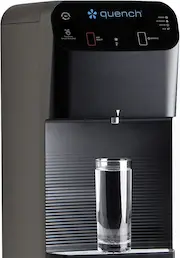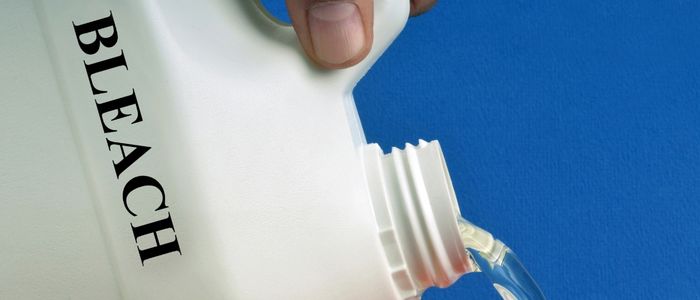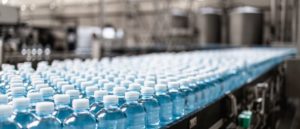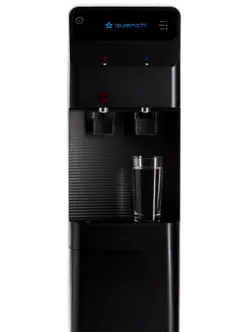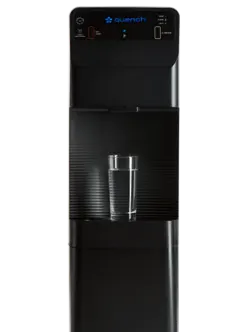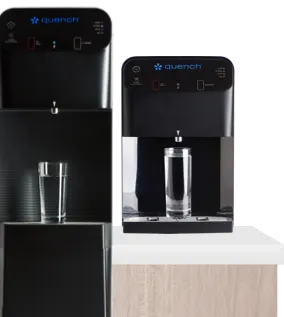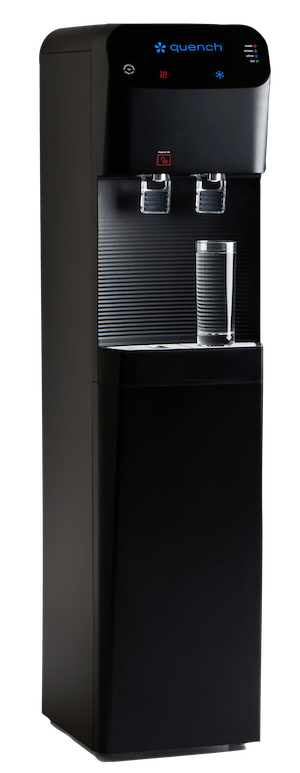Have you detected an odd odor in your water lately? If it seems similar to bleach, it might be concerning, but it’s probably not due to harmful substances. Many people link the scent of chlorine with bleach. However, in this situation, chlorine is deliberately added to public water systems to act as a disinfectant, eliminating waterborne diseases. While there are methods to enhance your drinking water quality, it’s important to understand that chlorine will likely always be present in your tap water.
Read on to learn more.
Quick Facts
- The smell of bleach in your tap water is likely caused by elevated chlorine levels.
- Low amounts of chlorine in your water aren’t harmful; in fact, the Environmental Protection Agency (EPA) mandates its use to sanitize water before it reaches households and workplaces.
- Boiling or refrigerating your tap water can eliminate the bleach odor.
- While the EPA mandates chlorine in public water systems, it recommends levels below 4 mg/L. However, the smell of chlorine can be detected at levels as low as 1 mg/L.
What Causes the Smell?
Because public water sources undergo chlorination, your tap water may occasionally carry a bleach-like odor. This typically happens when there’s an excess of chlorine in the water. If you’ve ever been in a pool right after it’s been chlorinated, you’re likely familiar with this smell.
Chlorine plays a vital role in water treatment. It’s added in small amounts to public water sources and treatment facilities to eliminate traces of bacteria, viruses, and parasites as the water travels to its point of use. Even treatment plants using alternative disinfection methods are mandated by law to introduce small doses of chlorine before distribution.
The EPA stipulates that chlorine levels in public water systems must be maintained within a detectable range, but not exceed 4 mg/L. For most individuals, a bleach smell becomes noticeable at around 1 mg/L, so it’s not uncommon. If the scent of bleach or chlorine is particularly strong, it could indicate that your local water supplier distributes water over a long distance, necessitating additional chlorine to preserve water quality over extended periods.
Is It Safe To Drink Water That Smells Like Bleach?
If your water has a distinct smell of bleach, you might be wondering whether it’s safe to drink. The answer largely depends on the source of the odor and the level of chlorine present in the water. In most cases, water that smells like bleach is still safe to drink, as the odor is often a sign that the chlorine has effectively done its job in disinfecting the water. However, if the smell is particularly strong or persistent, it could indicate an overabundance of chlorine. This can potentially lead to:
- Unpleasant taste and odor: High levels of chlorine can result in a strong bleach-like taste and odor in drinking water, making it unpalatable for consumption. This can have long-term effects on your hydration.
- Irritation: Chlorine can irritate the eyes, nose, and throat, causing discomfort or potentially exacerbating existing respiratory conditions like asthma.
- Digestive discomfort: Excessive chlorine may lead to gastrointestinal issues such as nausea, vomiting, and stomach cramps.
- Risk of by-products: Research reveals that when chlorine reacts with organic matter in water, it can form harmful disinfection by-products (DBPs) such as trihalomethanes (THMs) and haloacetic acids (HAAs). These have been linked to adverse health effects including cancer and reproductive problems.
- Sensitive groups: Infants, young children, pregnant women, and individuals with compromised immune systems may be more vulnerable to the effects of chlorine exposure.
While an excess of chlorine can present potential concerns, it’s important to note that a faint scent of bleach in your water doesn’t necessarily imply a problem. It’s only when the odor becomes notably strong or persistent, or if you observe unusual health effects, that it warrants further investigation.
What Should You Do?
If the presence of bleach odor in your water has you concerned about consuming too much chlorine, a few practices can help address the issue. While you can’t directly regulate chlorine levels, here are ways to minimize its presence:
- Contact your local utility company: You can always reach out to your utility provider to ask about the chlorine levels in your water supply. They can provide valuable information and guidance on fixing any problems regarding excessive chlorine.
- Chill your water: Allowing your water to chill in the refrigerator can help dissipate the bleach odor naturally. Once cooled, the chlorine scent should diminish, making the water more palatable to drink. Don’t drink water that has sat for longer than 24 hours. Instead, fill the pitcher with fresh water.
- Boil your water: Boiling your water for a few minutes can effectively remove chlorine and its associated odor. After boiling, allow the water to cool before consuming it for a chlorine-free drinking experience.
- Add dechlorination tablets: Consider using dechlorination tablets, which are designed to neutralize chlorine in water. These tablets can effectively treat large volumes of water, making them a convenient option for addressing chlorine-related concerns. This also works with vitamin C tablets.
- Use a water filter: Invest in a water filtration system specifically designed to remove chlorine and other impurities from your water. A bottleless water cooler from Quench, for example, can provide a long-term solution for ensuring that your drinking water is free from unwanted odors and tastes associated with chlorine.
Drinking Cleaner Water
For peace of mind with every glass, filtered water coolers can effectively eliminate chlorine and bleach odors from your water. A filtered water cooler from Quench utilizes carbon filtration, reverse osmosis filtration, or a combination of both to reduce impurities, including chlorine. Quench provides a comprehensive range of carbon-filtered and reverse osmosis-filtered water coolers ideal for workplaces and households alike. Explore our product line or get a free estimate for a water cooler today.
